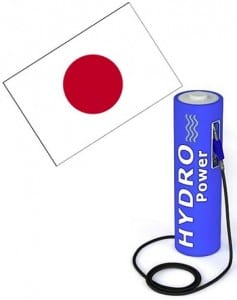New hydrogen fuel stations to be built in Japan
September 15, 2014New fueling stations are coming to the Aichi Prefecture
New hydrogen fuel stations are being built in the Aichi Prefecture of Japan. There are already four fueling stations operating in the prefecture and this number will increase to 11 when construction on the new stations is completed at some point in the near future. Toyota is the company behind the development of these fuel stations, hoping to prepare Japan for the launch of its fuel cell vehicles. The automaker intends to launch its fuel cell vehicles beginning in 2015.
Japan continues to lead the way in establishing a working hydrogen infrastructure to support fuel cell vehicles
Japan is currently home to one of the most comprehensive hydrogen fuel infrastructures in the world. Fuel cells have been used in the country for various purposes, including residential power, for several years now and Japan has invested heavily in the fuel infrastructure needed to support these energy systems. With Japanese automakers planning to launch fuel cell vehicles in the future, the Japanese government has been working to incentivize the purchase of these vehicles and further bolster the country’s fuel infrastructure.
Retail cost of hydrogen has not yet been set
 Infrastructure has been one of the most challenging aspects of using hydrogen in transportation. Much of the world lacks a functioning hydrogen infrastructure, making fuel cell vehicles quite unattractive to consumers. Building new fuel stations is only one step along the way to making fuel cell vehicles more popular. The retail price of hydrogen sold through these stations has yet to be determined. If it can be competitive with the price of conventional petroleum, fuel cell vehicles may find the traction they need with consumers.
Infrastructure has been one of the most challenging aspects of using hydrogen in transportation. Much of the world lacks a functioning hydrogen infrastructure, making fuel cell vehicles quite unattractive to consumers. Building new fuel stations is only one step along the way to making fuel cell vehicles more popular. The retail price of hydrogen sold through these stations has yet to be determined. If it can be competitive with the price of conventional petroleum, fuel cell vehicles may find the traction they need with consumers.
Fuel cell vehicles may have trouble finding success outside of Japan
There is some concern that fuel cell vehicles will have very limited success outside of Japan. Elsewhere in the world, governments have been showing cautious support for these vehicles through the introduction of subsidies that will support their purchase and modest investments in infrastructure projects. Time will tell whether or not these concerns are founded.

 With over 15 years of reporting hydrogen news, we are your premier source for the latest updates and insights in hydrogen and renewable energy.
With over 15 years of reporting hydrogen news, we are your premier source for the latest updates and insights in hydrogen and renewable energy.